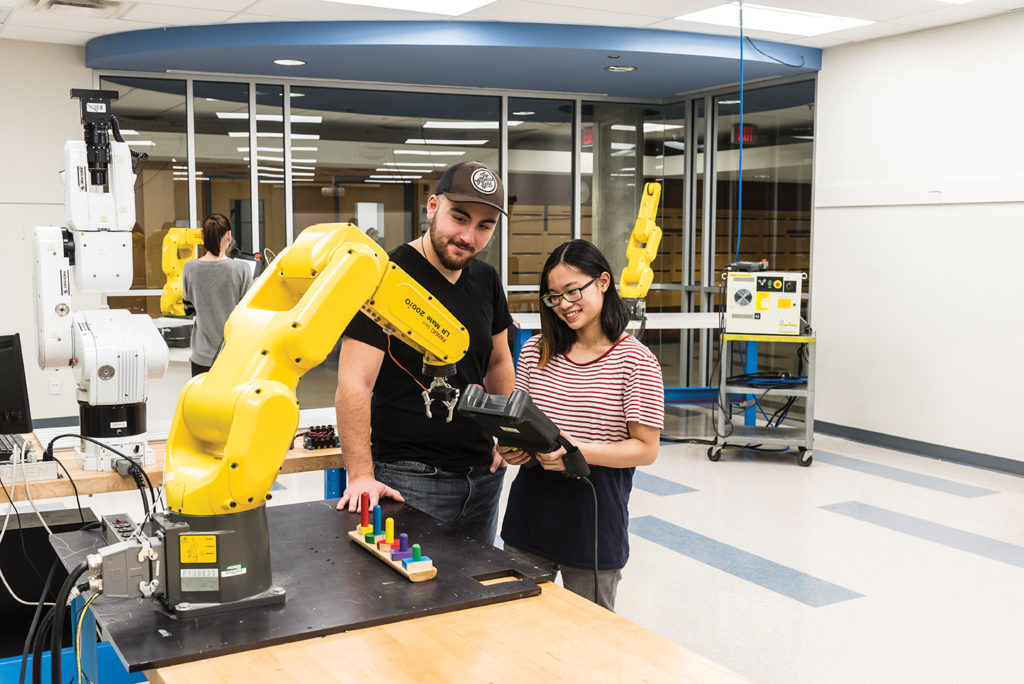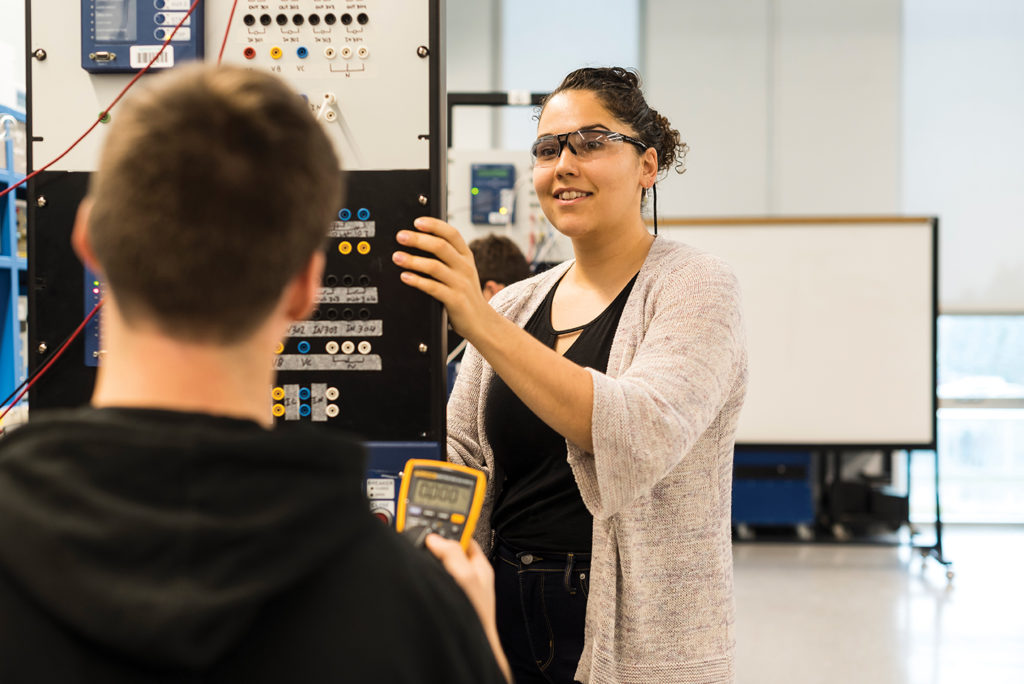A New Class: Algonquin College is Saving a Seat for Women in STEM

Thirty per cent seems to be the magic number when it comes to inclusion.
It’s the tipping point from tokenism to creating real change. “We didn’t pull that number out of the air,” says Sarah Gauen, Inclusion and Diversity Specialist at Algonquin College. “30 per cent is the number that’s been proven—when you look at boardrooms, when you look at team interactions—if you have 30 per cent representation for one group, that’s the number when you start to get meaningful interactions and when the contributions of women in particular start to make a difference.”
This number has been picked up by the Ontario Securities Commission as a requirement at the board level for representation for women, and Algonquin is using it as a goal post for enrollment in their tech programs. They came up with the We Saved You a Seat program as a way to combat gender imbalance in enrollment. The program reserves 30 per cent of classroom seats for qualified women in four STEM programs: Computer Systems Technician, Electrical Engineering Technician, Electro-Mechanical Engineering Technician, and Mechanical Engineering Technology.
“We started to take a look at the composition of our students, and looking at the numbers we realized that we had a bit of a challenge in some of our tech programs—the persistent underrepresentation of women in technology,” Gauen explains. “We looked back through about 10 years of enrollment and graduation, and we saw that women pretty consistently made up only 10 per cent of enrollment in many of our programs, or less.”
The reason why women are underrepresented in STEM subjects is long and complex. From being told that they won’t be as good as boys at certain subjects to increased anxiety when it comes to test taking because of that narrative, girls often self-screen out. In addition, a major factor in applying for a program is the perception of belonging—it is this factor that Algonquin is trying to combat with the We Saved You a Seat program, by making sure there are a substantial number of women in the classroom to reduce that feeling of isolation.
“We looked back through about 10 years of enrollment and graduation, and we saw that women pretty consistently made up only 10 per cent of enrollment in many of our programs, or less.”
“We know from our research that when there is gender diversity in the classroom, test scores go up for everyone,” says Gauen. “And this will help the guys as well. We’re hoping that employers will recognize that Algonquin is developing soft skills; when young men and women graduate they will have the social skills to get along in the workplace.”
In addition to encouraging women to enroll, they will also provide training for faculty on how to teach more effectively in gender-inclusive classrooms. “The first thing we needed instructors to understand is why women have been unsuccessful in STEM programs in the past, and how that lack of success is linked to teaching,” Gauen explains. “So we focused on what they can do to help women be more successful.” They are also encouraging faculty to arrange group projects to encourage participation and to use diversity in the curriculum by using case studies of women who have achieved success in their field.
They are also working toward making sure that financial limitations aren’t stopping women from partaking in these programs by setting up scholarships and bursaries for women in STEM. Corporate donors are already stepping up to provide scholarships under the program. Algonquin is making sure the participants have ongoing support as they move through the program. They are launching a mentorship program for participants to get advice from industry mentors, both men and women, who will coach and guide them on both studying and working in the industry after graduation, so they can really see themselves in the workplace.
“Ottawa’s situated itself as a tech capital—we’re Silicon Valley North,” says Gauen. “We’re building up Kanata North, we’re the home of the AGDA Group—these are great tech firms, but they need the talent to stay here. Algonquin College is making sure we have great talent, both men and women, who are connected with industry and coming out ready to work. By building a great talent pool here we’re more likely to keep these great employers hiring out of our community. We’re a part of the growth of Ottawa.”
























